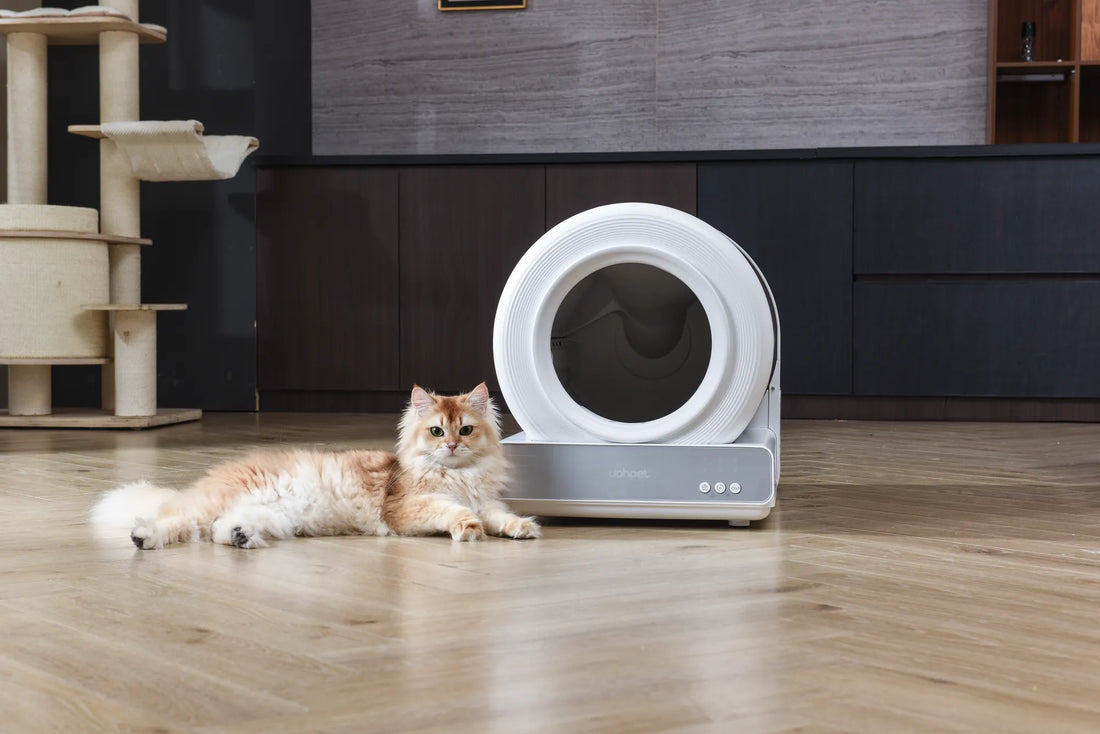If you've noticed blood in your cat's urine or your feline friend is peeing outside the litter box, it's time to pay attention. These symptoms can be alarming and may indicate underlying health issues that require immediate attention. Understanding the causes and knowing how to address them can make a significant difference in your cat's well-being.
Understanding Blood in Cat Urine
Blood in cat urine, also known as hematuria, is a condition that should never be ignored. It can be a sign of various health problems, ranging from urinary tract infections to more severe conditions like bladder stones or even cancer. The presence of blood can make the urine appear pink, red, or brown, depending on the amount of blood present.
Common Causes of Blood in Cat Urine
There are several potential causes of blood in cat urine. One of the most common is a urinary tract infection (UTI). UTIs occur when bacteria enter the urinary tract, leading to inflammation and bleeding. Another common cause is bladder stones, which can irritate the bladder lining and cause bleeding. In some cases, blood in the urine may be due to trauma or injury to the urinary tract. Less commonly, it could be a sign of a more serious condition like cancer.
Diagnosing the Problem
If you notice blood in your cat's urine, it's essential to consult a veterinarian as soon as possible. The vet will likely perform a physical examination and may recommend diagnostic tests such as a urinalysis, blood tests, or imaging studies like X-rays or ultrasounds. These tests can help determine the underlying cause of the hematuria and guide the appropriate treatment.
Why Is My Cat Peeing Outside the Litter Box?
Peeing outside the litter box is another common issue that cat owners face. This behavior can be frustrating and may indicate that something is wrong with your cat's health or environment. Understanding the reasons behind this behavior can help you address the problem effectively.
Medical Reasons for Peeing Outside the Litter Box
One of the primary medical reasons for a cat peeing outside the litter box is a urinary tract infection. Cats with UTIs may associate the litter box with pain and avoid it altogether. Other medical conditions, such as kidney disease, diabetes, or arthritis, can also lead to inappropriate urination. It's crucial to rule out these medical issues before addressing behavioral causes.
Behavioral and Environmental Factors
If medical issues are ruled out, the problem may be behavioral or environmental. Cats are creatures of habit, and any changes in their environment can lead to stress and anxiety, causing them to pee outside the litter box. Factors such as a dirty litter box, a new pet in the household, or even a change in the type of litter can trigger this behavior. Ensuring a clean and comfortable environment for your cat can help mitigate these issues.
Addressing Blood in Cat Urine and Peeing Outside the Litter Box
Once the underlying cause of blood in your cat's urine or inappropriate urination is identified, the next step is to address the issue. Treatment will vary depending on the diagnosis, but there are some general approaches that can help.
Medical Treatments
For medical conditions like UTIs or bladder stones, your veterinarian may prescribe antibiotics, pain relievers, or other medications. In some cases, surgical intervention may be necessary to remove bladder stones or address other structural issues. It's essential to follow your vet's recommendations and complete the full course of treatment to ensure your cat's recovery.
Behavioral and Environmental Solutions
If the issue is behavioral or environmental, making changes to your cat's surroundings can help. Ensure the litter box is clean and easily accessible. Consider providing multiple litter boxes, especially in multi-cat households. Using a litter that your cat prefers and maintaining a consistent routine can also reduce stress and encourage proper litter box use.
Preventing Future Issues
Prevention is always better than cure. To minimize the risk of blood in your cat's urine and inappropriate urination, take proactive steps to maintain your cat's health and well-being.
Regular Veterinary Check-ups
Regular veterinary check-ups are crucial for early detection and prevention of health issues. Your vet can monitor your cat's overall health and catch any potential problems before they become severe. Routine blood tests and urinalysis can help identify issues like kidney disease or diabetes early on.
Maintaining a Clean and Stress-Free Environment
Keeping your cat's environment clean and stress-free is essential for their well-being. Regularly clean the litter box, provide plenty of fresh water, and ensure your cat has a balanced diet. Minimize changes in their environment and provide plenty of mental and physical stimulation to keep them happy and healthy.
Monitoring Your Cat's Behavior
Pay attention to your cat's behavior and habits. Any changes in urination patterns, appetite, or activity levels could be a sign of an underlying issue. Early intervention can prevent minor problems from escalating into more serious conditions.
Blood in cat urine and peeing outside the litter box are issues that should never be ignored. By understanding the potential causes and taking appropriate action, you can ensure your cat remains healthy and happy. Regular veterinary care, a clean environment, and attentive monitoring are key to preventing and addressing these problems. Don't wait—take action today to safeguard your feline friend's well-being.

![[🎃Halloween Sale]UAHPET Stainless Steel Self-Cleaning Cat Litter Box](http://www.uahpet.com/cdn/shop/files/1-cat-litter-box.jpg?v=1759128420&width=1600)












